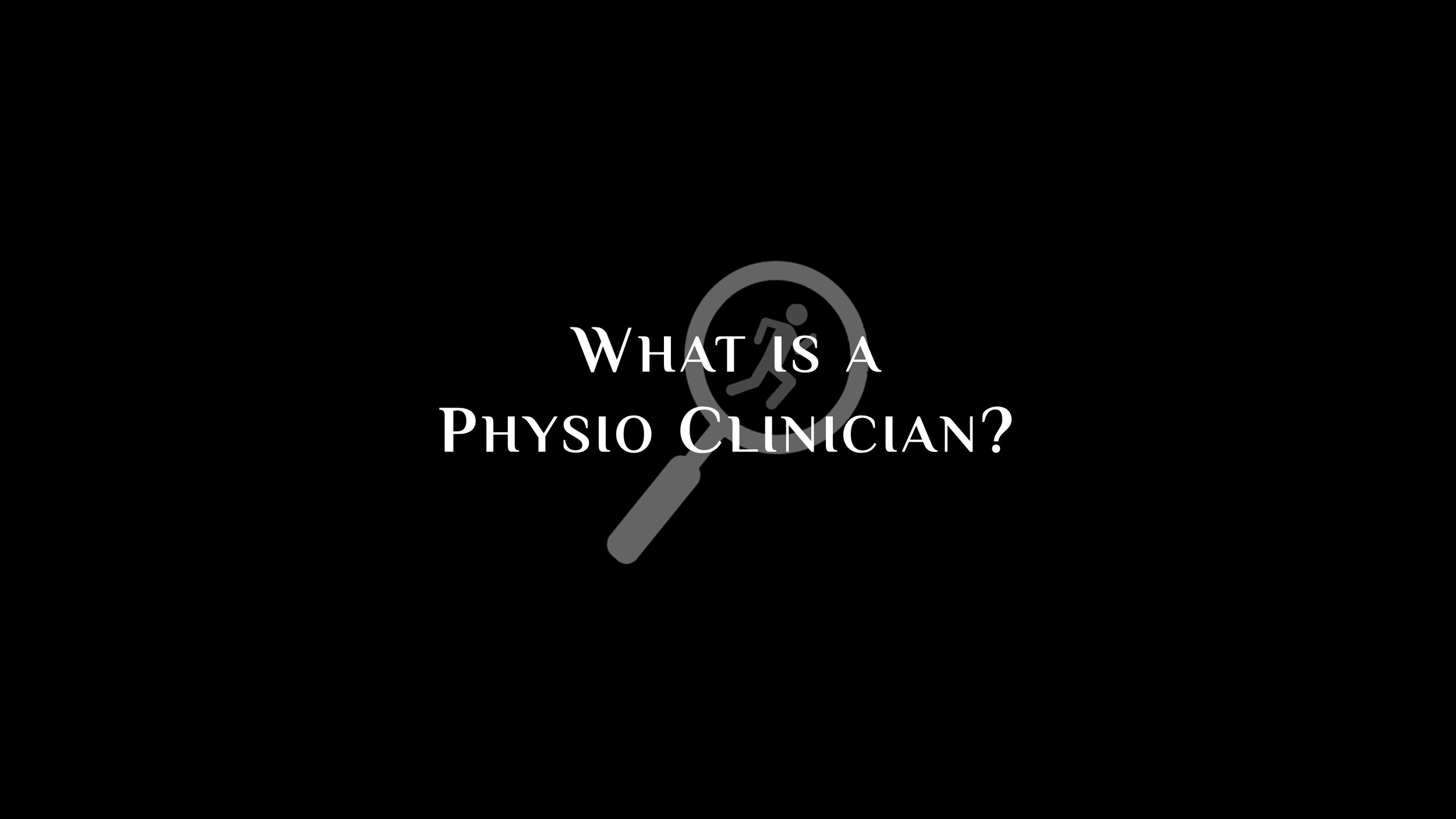
A ‘Physio Clinician’ is how I choose to operate as a registered Physiotherapist and Healthcare Professional, to get the outcomes my Patients and I want, to look myself in the mirror each day with pride, and to meet my responsibility to help reduce the burden on the Healthcare System.
You can read why I’ve chosen to work this way by selecting here.
Here are the standards you can expect from a Physio Clinician:
-
A Physio Clinician has at least 5 years working as a clinical Physiotherapist, consistently striving to provide a high-quality, patient-centred diagnosis, assessment, and injury management service to patients with musculoskeletal pain and injuries.
-
A Physio Clinician spends more time in an initial consult (usually 45 but up to 60mins) than a typical Physiotherapy appointment to fully get to know each Patient and go on a comprehensive diagnostic journey with them. A Physio Clinician does not share time between two patients at the same time, the entire appointment is for one patient only. A typical first consult with a Physio Clinician goes from 40-50mins with the final 10mins used by the Physio Clinician for administration and to make the Patients injury management program and email it to them.
-
A Physio Clinician is a good Science Communicator, complexity is simplified for the Patient and their network, with injury education that the Patient and their family can understand. A Physio Clinician has the experience to give their Patient reassurance that serious and/or sinister causes of their injury haves been ruled out, or know who/where to refer the Patient if they cannot rule it out. A Physio Clinician avoids using unnecessary ‘nocebic’ narratives for Patients that could reduce self-efficacy, self-esteem and cause undue stress. The appointment is in a private room, not behind a curtain in a shared room, this helps foster open communication between the Patient and the Physio Clinician .
-
A Physio Clinician will be honest when explaining expected treatment effects and outcomes with careful and deliberate reference to the evidence-base and scientific literature. If a Physio Clinician cannot help a patient in any significant way within their scope of practice as a musculoskeletal healthcare practitioner they will inform the patient, however if the Physio Clinician knows of someone who might be able to assist they will offer a referral for the patient. A Physio Clinician will strive to not take credit when patients naturally get better over time in order to empower the Patient.
-
A Physio Clinician still utilises ‘classic Physiotherapy’ hands-on/manual therapy treatments where it is deemed appropriate and will have significant effects for the clinical outcome, informing patients honestly about how each therapeutic modality works (or doesn’t work) without pseudoscience/quackery and with reference to the scientific evidence base. If a Patient is simply seeking ongoing ‘therapy’ without the use of a Physio Clinicians Clinical Skills, a Physio Clinician will refer them to someone who is happy to provide it.
-
A Physio Clinician generates an individualised injury management program for their patients, prioritising high quality and high value management that is evidence based, to have the best long-term outcomes, improving patient self-efficacy and reducing healthcare burden. A Physio Clinician only provides ‘exercises’ when appropriate in order to produce significant outcomes, if no ‘exercises’ are required, none will be recommended. Conversely, if a comprehensive rehabilitation program is required (eg: post-operative Athlete or Serviceperson (ADF, Police, Tradie etc), one will be generated and strongly recommended.
-
Physio Clinicians are highly accessible via email for any questions/concerns between appointments which means a high quality service for less cost over time, this is good value. ‘Therapy’ is provided were it is appropriate and will have significant outcomes for the Patient. On average there are less appointments per injury case with a Physio Clinician than with usual Physiotherapy care, the focus is on the injury management program rather than on regular in-session ‘therapy’. Patients are not sent away and forgotten about, Physio Clinicians will follow up with them on a regular basis until there is a resolution.
-
Utilising Integrative Medicine (a Holistic Approach), a Physio Clinician liaises with some of the best local GPs, SEM Physicians, Surgeons/Specialists and Exercise Physiologists, as well as other services such as Dietitians, Psychologists, Hand Therapists and Paediatricians/Paediatric Physios.
-
A Physio Clinician is passionate about achieving the best Patient outcomes, whatever they may be, they are also passionate in improving not only themselves personally and professionally but is always exploring how to improve musculoskeletal healthcare. They learn and unlearn on a regular basis, and freely share their knowledge with their peers and colleagues. They are educated through a variety of sources including surgical observations in theatre with specialists in their network.
-
A Physio Clinician works towards a resolution with their Patient. Their Patient will always know the current plan and the next step if things get better, worse or remain the same. Once the Physio Clinician can no longer provide significant outcomes for the Patient, the Physio Clinician will be honest and inform the Patient. ‘Palliative Physiotherapy’ treatments or permanent ongoing ‘therapy’ for chronic conditions are outside of the role of a Physio Clinician however they will find other service who can provide this (eg: Massage Therapy, Chiropractic, Other Physiotherapists etc.).
-
A Physio Clinician recognises the complexity and difficulty navigating insurance and workers compensation in healthcare and pays extra attention in these cases, to provide the highest levels of communication to all parties involved for the lowest possible number of hurdles and delays for everyone involved, hopefully enabling a speedy recovery and return to work for the Patient.
In summary, a Physio Clinician focuses on working with the patient, not working on the patient.
